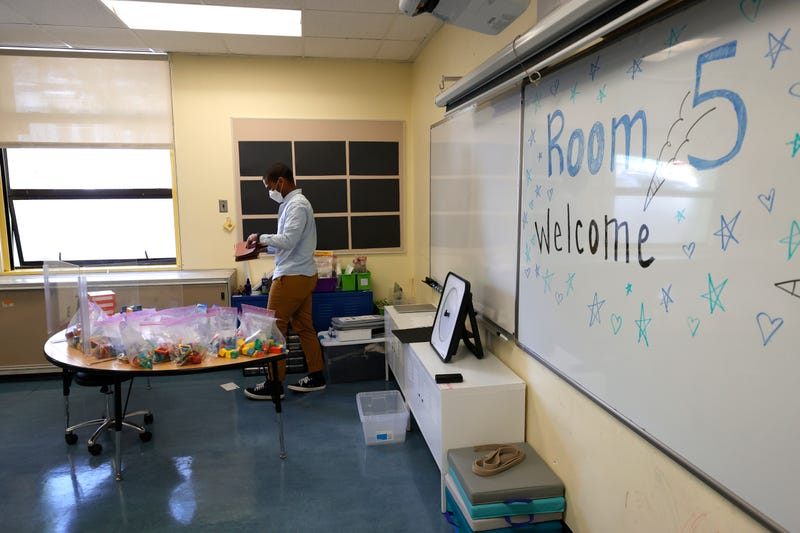
Bay Area health officials on Thursday reaffirmed their commitment to in-person learning for K-12 students this school year, as the COVID-19 delta variant continues to spread throughout the region.
Public health officers from Alameda, Contra Costa, Marin, Monterey, Napa, San Benito, San Francisco, San Mateo, Santa Clara, Santa Cruz, Solano and Sonoma counties, as well as the City of Berkeley, said Thursday that "effective protocols" recommended by the state can prevent the spread of COVID-19 in schools.
Universal indoor masking, vaccinations for eligible students and staff, testing, regular hand-washing, proper ventilation and sick people staying home can ensure a "safe return to the classroom," which officials added they "firmly support."
"The lack of in-person learning during the COVID-19 pandemic not only disrupted education, but it also weakened social supports and harmed the mental health of students," officials from the 13 public health departments said in a statement. "The risks and benefits of returning to in-person learning are clearer now than any other time during this pandemic – we must all continue to do everything possible to keep kids safely attending their schools."
There is high community spread in each of the 13 jurisdictions, and nearly all of the country, according to U.S. Centers for Disease Control and Prevention data. The Bay Area, as a whole, is one of the most vaccinated regions in the country, but vaccination rates vary by county. While 85% of Marin County residents aged 12 or older are fully vaccinated, only 58.6% of eligible San Benito residents are.
Children under the age of 12 aren't yet eligible to receive any of the three COVID-19 vaccines approved under an emergency authorization or full basis by the U.S. Food and Drug Administration. Cases, hospitalizations and deaths are surging among the unvaccinated across the state and around the country, and health officials said they’re more worried about children contracting COVID-19 outside of schools rather than within them.
"While children can get COVID-19, severe disease among kids is uncommon and deaths are exceedingly rare," the officials said. "Transmission can happen in any setting, including in schools, but children are often exposed to COVID-19 at home or in social settings where safety practices vary. Cases identified by school testing programs may often be unrelated (to) classroom exposure."
As of Thursday, California children accounted for 13.7% of current COVID-19 cases in the state despite being 22.5% of the state population.

